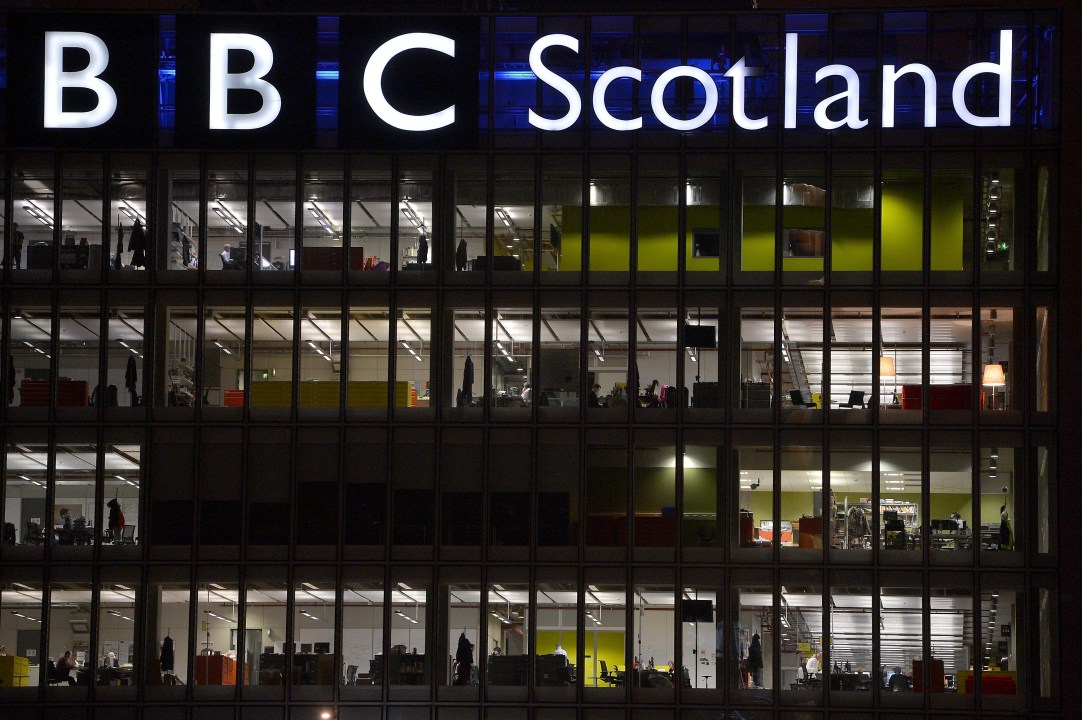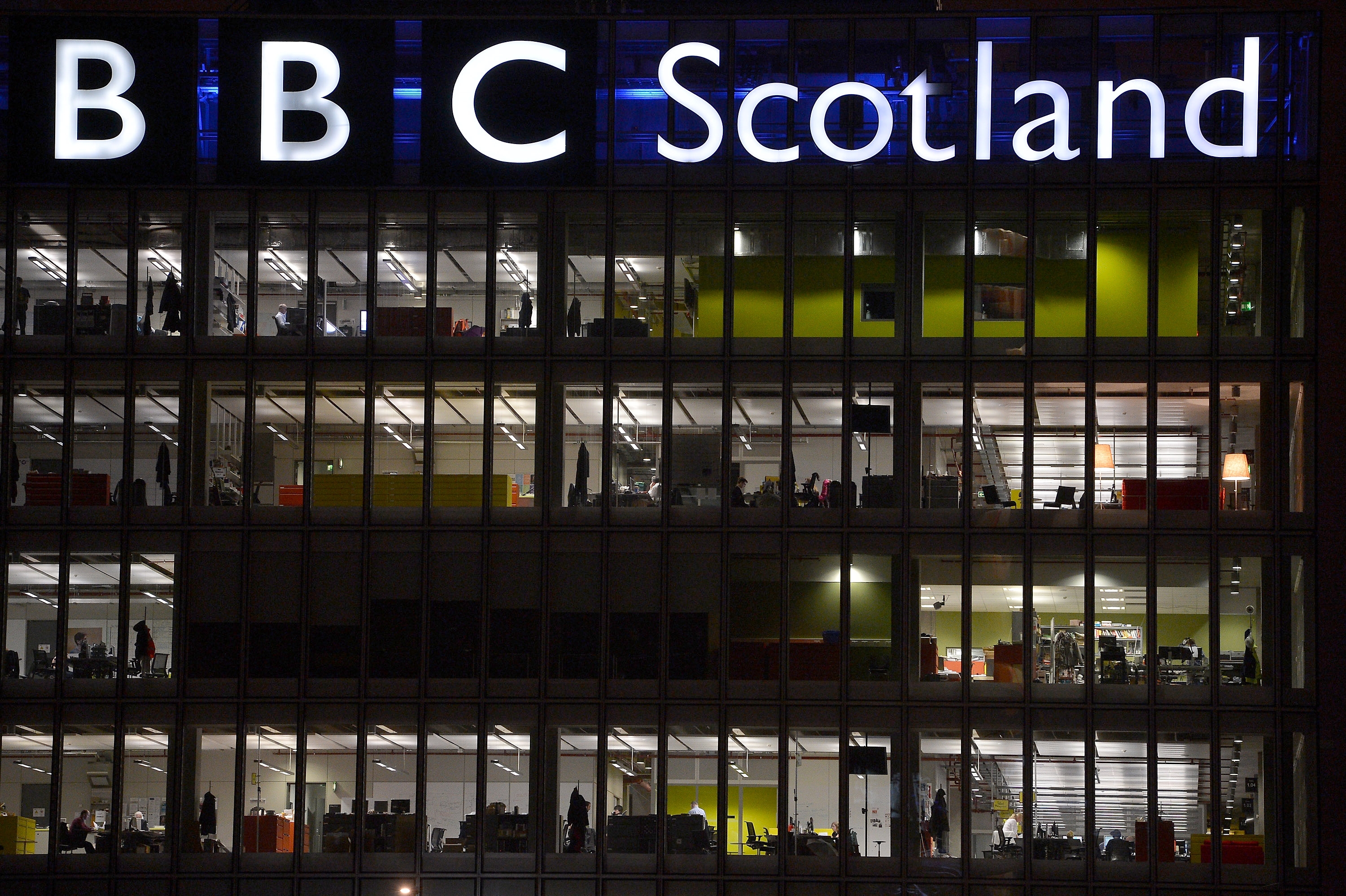There are many reasons for this but let’s begin with the first and simplest: it is the British Broadcasting Corporation. Who could have imagined that an organisation that, rightly or not, sees itself as both creator and guardian of much of modern Britain’s identity and culture might think itself threatened by a movement hell-bent on destroying, or at least significantly changing, that identity and culture? I know, me neither.
Now of course the BBC is not consciously or deliberately biased against the SNP and against Scottish independence. It is scrupulous about ensuring ‘No’ voices are balanced by ‘Yes’ voices just as, in other areas and debates it does its best to be seen as an impartial, disinterested, referee.
I’ve written about this before but it bears repeating that the BBC’s news coverage is invariably suspicious of government initiatives. This is, in general, only proper even if it also inevitably means the corporation’s news coverage is infected by a bias towards the status quo. New ideas must be tested and known knowns are preferable to known unknowns.
A general election is a different kind of beast. Come election-time the BBC will, quite properly, subject the opposition’s proposals to scrutiny too. They will be asked to prove their readiness for office just as the government will be asked to justify their claims to another term.
But not all political debates are as clear as a general election. Not all choices are alike. It’s for this reason, among others, that the corporation views British membership of the EU as a good – and settled – thing and thus the burden of proof is upon those who wish the United Kingdom to leave.
The BBC gives UKIP plenty of airtime (partly because Mr Farage’s party exert a kind of appalling fascination and partly because BBC executives worry, deep down and just a little, that they might be missing something important) but you’d be hard-pressed to make a convincing case that it’s largely favourable coverage.
The Scottish independence question is much more like the european question than it is like an ordinary general election. The burden of proof is presumed to lie with those advocating separation not with those who can live with the status quo.
And so it is understandable, I think, that independence advocates are given a tougher time than Unionists. The status quo is not intolerable so why change it? Now, sure, nationalists disagree. They think the status quo is intolerable. But, perhaps puzzled by all this fervour north of the border, the BBC wants them to explain why that might be the case.
Not just the BBC either, of course, most of the press too. In January I suggested one of the Yes campaign’s goals was to shift the burden of proof to Unionists. Not Why should Scotland be independent? but Why shouldn’t Scotland be independent? They have had some success in doing so, at least in as much as Yes-supporting columnists parse every announcement made by any Unionist while declining to subject the SNP’s claims to any comparable scrutiny. But, still and with these exceptions duly noted, in general the media still thinks, or still behaves as though it thinks, the burden of proof lies with the Yes side.
The media doesn’t subject Unionist counter-offers to independence to as much scrutiny because, in general, it thinks those promises of more powers after the referendum an issue of mere secondary importance to be wrestled over once the main battle has been decided.
As the Liberal Democrats will tell you, the media struggles with any story that has more than two sides. The press is minded to deal with or consider what No means after there has been a No vote, not before. There’s not much point in obsessing over Labour’s plans for a new Scotland Act until they’re in a position to deliver that Act. Same for the Tories.
But the SNP have their referendum and it’s happening now. So that’s what attention will focus upon. They want to make a change – a whopping great radical change too – and so weaknesses in their case are, probably inevitably, going to attract more attention than weaknesses in a case that says, actually, we can just muddle along much as we have muddled along until now.
Perhaps that is unfair but it’s also the way it is. Yesterday’s gathering of a few hundred protestors angry at BBC Bias is, I think, understandable but misguided. Understandable because it’s part of a nascent dirk-in-the-back interpretation of a No vote (if Scotland votes No!) but misguided because it rather risks making the nationalists look like petty, chippy, clowns. Which is a look the modern SNP has spent thirty years moving away from.
One final thing: there is a curious part of the nationalist movement that rather objects to British people playing a part in this referendum. Sometimes you get the impression that some (doubtless a minority!) nationalists think it is disgraceful that the British government uses taxpayers’ money to make the case for maintaining the UK. As though the UK government should be a disinterested observer in this debate. A cute but rather fanciful notion.
Now the BBC is not a wing of the government but it would hardly be a surprise if, somewhere deep inside its institutional consciousness, it believed the break-up of Britain would be a bad thing. In that respect nationalist insinuations about The Unionist Implications of the Great British Bake-off are not quite as far from the mark as they might initially seem. But, look, it’s the BBC.








Comments